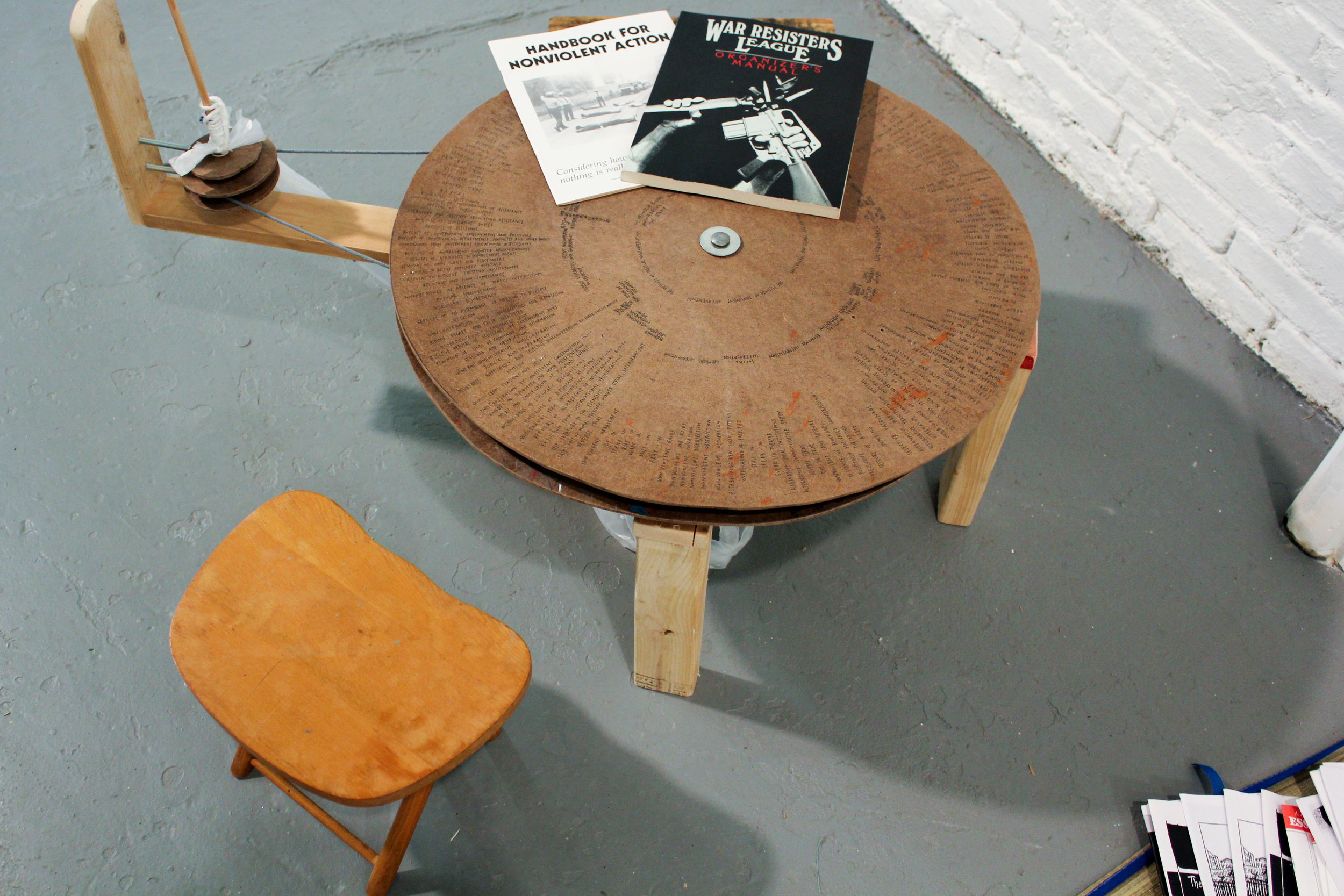Public Trust
curated by Douglas Paulson & Christina Vassallo
September 7 - September 30, 2012
Flux Factory / Long Island City, Queens
Public Trust is a group exhibition that examines the relationship between formal and informal cultural institutions and their audiences. Through sanctioned and guerrilla interventions, we question how institutions deliver and disseminate knowledge, while meeting the needs of contemporary society. Ten artists and collectives were commissioned to investigate and reveal the hidden values of our most popular pillars of culture, generate new social relationships through this process of questioning, and celebrate the crucial roles public institutions fill.
Public Trust is comprised of both artworks at the Flux Factory gallery and actions in public spaces and institutions throughout New York City, including re-enactments of protests staged by artists groups since the 1930’s through present day; a mobile pacifist library that will make the rounds to NYC’s libraries; recommended reading lists curated by incarcerated New Yorkers; physical audits of the dirt inside banks; and a pamphlet using the Hayden Planetarium Sphere to describe the space junk in Earth’s orbit; among other works.
This exhibition is a platform for audiences to experience something unexpected at a familiar cultural cornerstone, and to explore and/or interrogate the assumptions that institutions make about their relevance to our daily lives.
Participating artists: Cassandra Thornton, Center for Tactical Magic in collaboration with the Street Vendor Project of the Urban Justice Center, Daniel Bejar, Douglas Paulson, Heidi Neilson, Jo Q. Nelson, Matt Freedman & Jude Tallichet, Monica Rodriguez, Stephanie Diamond,and Valentina Curandi & Nathaniel Katz. Curated by Christina Vassallo and Douglas Paulson, with special thanks to Carina Kaufman for production assistance.
Curators' Statement
Flux Factory has transformed itself over the course of eighteen years. We’ve changed from an informal living collective to a formal collective that organized cultural “stuff,” to an art-making collective that is also a 501c3 organization, to an international art-making nonprofit and competitive residency program that commissions collaborative projects.
In an alternative art space that operates on a shoestring budget, the successes and failures, the innovations and stagnations, the compatibilities and incongruencies take on epic proportions and affect every level of our organization and individual in our collective. When demands outnumber resources, how can we function as a nimble and fluid artist collective that requires consensus-based decision making while also meeting the regulations of our nonprofit structure? As we struggle to answer this question, we realize we’ve drifted into the outermost fringes of institutionalization.
For us, Public Trust begins in this state of self-reflection. Inspired by resistance movements and the history of institutional critique, we wanted to investigate the role of money in public organizations, bureaucratic mechanisms, institutionally cultivated sensibilities, and where, exactly, trust falls within this spectrum of questioning. At a moment when accountability motivates so many of our demands, we wanted to organize an exhibition that would hold our own feet to the fire, as curators and as managers of an organization that both requires and serves the public’s trust.
We’ve commissioned artists to critique, celebrate, augment, and intervene in the institutions that generate, package, and deliver culture in New York City. The works included in Public Trust examine intentional and unintentional institutions: museums, NYC’s infinite network of street vendors, sports, banks, political party conventions, libraries, our neighborhood, and of course, ourselves.














